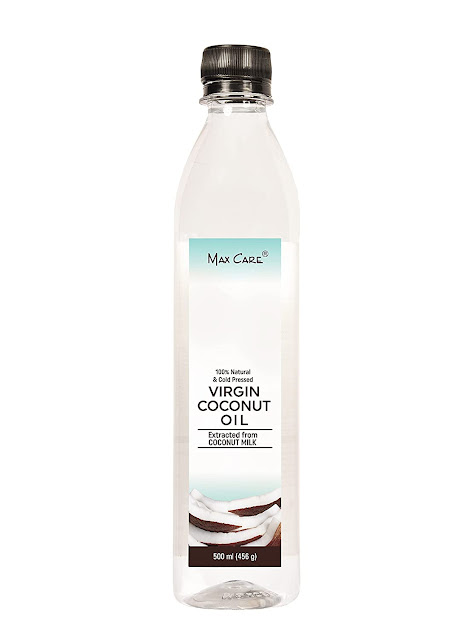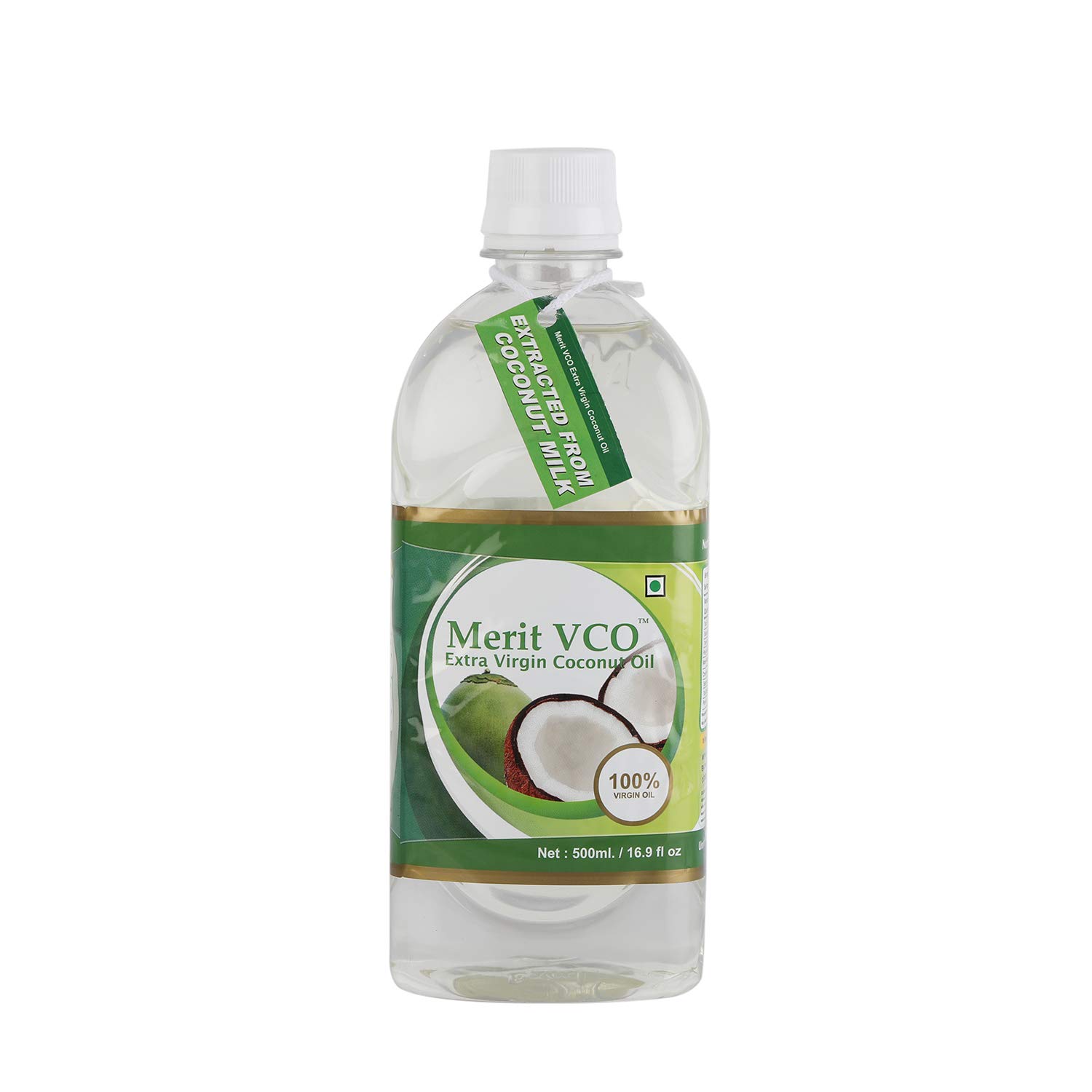Introduction
Coconut oil is not just a kitchen staple; it is also a powerhouse of health benefits. Extracted from the meat of mature coconuts, this natural oil has been used for centuries in various cultures for its medicinal and therapeutic properties. Packed with essential fatty acids, vitamins, and minerals, coconut oil offers a wide range of health benefits. Let’s first explore 20 incredible health benefits of coconut oil that make it a valuable addition to your daily routine.
20 incredible health benefits of coconut oil
1. Boosts Heart Health: Coconut oil contains medium-chain fatty acids (MCFAs) that can raise levels of beneficial HDL cholesterol and lower levels of harmful LDL cholesterol, reducing the risk of heart disease.
2. Supports Weight Loss: The unique composition of MCFAs in coconut oil increases satiety and boosts metabolism, helping in weight management.
3. Enhances Brain Function: The MCFAs in coconut oil are converted into ketones, which serve as an alternative energy source for the brain, potentially improving cognitive function and memory.
4. Fights Inflammation: Coconut oil’s anti-inflammatory properties can help reduce inflammation and provide relief from conditions such as arthritis and inflammatory bowel disease.
5. Promotes Digestive Health: Coconut oil possesses antimicrobial properties that can help combat harmful bacteria, fungi, and parasites in the digestive system, promoting a healthy gut.
6. Supports Immune System: The lauric acid in coconut oil has antimicrobial and antiviral properties, which can strengthen the immune system and protect against infections.
7. Improves Skin Health: Applying coconut oil topically can moisturize and nourish the skin, helping to treat dryness, eczema, psoriasis and other skin conditions.
8. Boosts Hair Health: Coconut oil can penetrate hair strands, reducing protein loss and improving hair strength, shine, and overall health.
9. Enhances Dental Health: The antimicrobial properties of coconut oil can help fight bacteria in the mouth, reducing plaque formation, gum disease, and bad breath.
Also see: Why You Should Never Put Off A Visit To The Dentist
10. Balances Hormones: Coconut oil can support hormone production and balance, particularly in women, aiding in menstrual cycle regulation and reducing symptoms of hormonal imbalances.
11. Supports Thyroid Function: The medium-chain fatty acids in coconut oil may enhance thyroid function, helping to regulate metabolism and energy levels.
12. Provides Anti-Aging Effects: The antioxidants in coconut oil can protect against oxidative stress, reducing the skin problems, reducing signs of aging and promoting youthful-looking skin.
Must See: 10 Tips to Tighten Your Face Skin Naturally
13. Promotes Liver Health: Coconut oil contains healthy fats that can support liver function and promote detoxification processes in the body.
14. Supports Bone Health: Coconut oil aids in the absorption of essential minerals like calcium and magnesium, contributing to stronger bones and preventing osteoporosis.
15. Improves Blood Sugar Control: The healthy fats in coconut oil can improve insulin sensitivity and help regulate blood sugar levels, making it beneficial for individuals with diabetes or prediabetes.
16. Enhances Athletic Performance: The MCFAs in coconut oil can provide a quick source of energy for athletes and enhance endurance during physical activities.
17. Alleviates Allergies: Coconut oil’s anti-inflammatory properties may help reduce allergic reactions and ease symptoms such as itching and inflammation.
18. Relieves Constipation: Consuming coconut oil stimulates bowel movements and helps relieve constipation, thanks to its lubricating and mild laxative effects.
19. Supports Eye Health: The antioxidants in coconut oil, such as vitamin E, can help protect against age-related macular degeneration and promote overall eye health.
20. Aids in Wound Healing: The antimicrobial properties of coconut oil can help prevent infection and promote faster healing of wounds, cuts, and bruises.
As we have already discussed some amazing benefits of coconut oil, its time to delve into the uses and benefits of coconut oil for Oil Pulling.
Coconut Oil Pulling
Coconut oil pulling is an ancient Ayurvedic practice that has gained popularity in recent years for its potential oral health benefits. This technique involves swishing coconut oil in your mouth for a designated period, typically 10 to 20 minutes, to help improve oral hygiene. In this article, we will explore the ins and outs of coconut oil pulling, including its benefits, potential risks, and the best practices to follow. So, let’s dive in!
What Kind of Coconut Oil is Best for Oil Pulling?
When it comes to choosing coconut oil for oil pulling, it’s important to opt for high-quality, organic, and unrefined varieties. Cold-pressed coconut oil is the preferred option as it retains more of its natural nutrients and beneficial properties compared to refined versions. Look for labels that indicate the oil is suitable for consumption and specifically mention “unrefined” or “virgin” coconut oil.
The Best Coconut Oil for Oil Pulling:
1. Max Care Cold Pressed Virgin Coconut Oil: This popular brand offers organic, cold-pressed, and unrefined coconut oil that is perfect for oil pulling.
2. Organic India Extra Virgin Coconut Oil: Known for its quality, this brand provides organic, cold-pressed, and unrefined coconut oil that is ideal for oil pulling.
3. Merit VCO Extra Virgin Coconut Oil: Another reputable option, this brand offers organic, cold-pressed, and unrefined coconut oil suitable for oil pulling.
Potential Dangers and Precautions:
While coconut oil pulling is generally considered safe, there are a few precautions to keep in mind. Avoid swallowing the oil after oil pulling, as it may contain harmful bacteria and toxins from your mouth. Spit it out into a trash can instead of the sink to prevent clogging. Additionally, if you have a history of allergies or sensitivities to coconuts, consult with your healthcare professional before trying oil pulling.
Does Coconut Oil Expire?
Coconut oil has a long shelf life due to its high saturated fat content, which helps prevent rancidity. However, it may gradually lose its freshness and quality over time. To ensure the best taste and effectiveness, it is recommended to use coconut oil within two years of purchase. Check the label for the expiration date and store it in a cool, dark place to prolong its shelf life.
Coconut Oil Pulling for Teeth and Oral Health:
Coconut oil pulling is believed to offer several benefits for oral health. When swished around the mouth, the oil mixes with saliva and forms a milky solution that helps trap and remove bacteria and plaque. Some potential benefits of coconut oil pulling include:
1. Improved Oral Hygiene: Oil pulling may help reduce plaque buildup, gingivitis, and bad breath.
2. Teeth Whitening: While not a substitute for professional teeth whitening treatments, oil pulling may contribute to a fresher, cleaner appearance of teeth.
3. Gum Health: Coconut oil’s antimicrobial properties can help combat harmful bacteria in the mouth, promoting healthier gums.
4. Dry Mouth Relief: Oil pulling may help alleviate the discomfort of dry mouth by increasing saliva production.
How to Perform Coconut Oil Pulling:
1. Start with approximately 1 tablespoon of coconut oil.
2. Swish the oil around in your mouth for 10 to 20 minutes. Be gentle and avoid swallowing.
3. Spit the oil into a trash can and rinse your mouth thoroughly with water.
4. Brush your teeth as usual.
Remember, oil pulling should not replace regular brushing, flossing, or visits to your dentist. It can be incorporated into your oral hygiene routine as an additional practice for maintaining good oral health.
Coconut oil pulling can be a natural and beneficial addition to your oral care routine. By choosing the right type of coconut oil, following the recommended guidelines, and being aware of potential risks, you can unlock the potential benefits of this ancient practice. However, always consult with your dentist or healthcare professional before making any significant changes to your oral care routine. So, give coconut oil pulling a try and enjoy the potential oral health benefits it has to offer.
Apart from the above uses and benefits of coconut oil, it has numerous benefits for pets. So, let’s check out the uses and benefits of Coconut Oil for Pets:
Benefits of Coconut Oil for Pets
Coconut oil is not only a versatile oil with many health benefits but also holds potential benefits for our furry friends. When it comes to pet care, coconut oil has gained attention for its various uses and potential health advantages.
1. Coconut Oil for Yeast Infection in Dog Ears:
Yeast infections can cause discomfort and irritation for dogs, particularly in their ears. Coconut oil possesses antifungal properties that can help combat yeast overgrowth. To use coconut oil for this purpose, gently clean your dog’s ears and then apply a small amount of melted coconut oil to the affected area. Be sure to consult your veterinarian for a proper diagnosis and advice before attempting any treatments.
2. Coconut Oil for Dogs’ Coat Health:
Coconut oil can be an excellent natural remedy for maintaining a healthy and lustrous coat in dogs. The oil’s moisturizing properties can help alleviate dry skin, reduce itching, and promote a shiny coat. To use coconut oil for your dog’s coat, start by applying a small amount to your hands and then massage it into their fur, paying attention to dry or problem areas. Regular use can help improve the overall condition of their coat.
3. Coconut Oil as a Natural Flea Repellent:
Coconut oil may act as a natural flea repellent for dogs. While it may not eliminate a severe flea infestation, it can serve as an additional preventive measure. To use coconut oil as a flea repellent, rub a small amount onto your hands and then gently massage it into your dog’s fur, focusing on areas where fleas are more likely to hide, such as the neck, back, and tail. The oil’s scent and texture may help deter fleas.
4. Coconut Oil Alternatives:
While coconut oil offers numerous benefits, it’s essential to note that it may not be suitable for every pet or situation. If your pet has specific allergies or sensitivities, it’s crucial to consult with your veterinarian before introducing coconut oil into their diet or skincare routine. In some cases, alternative oils such as olive oil or fish oil may be recommended.
When using coconut oil for pets, remember the following guidelines:
– Start with small amounts: Introduce coconut oil gradually to monitor your pet’s response.
– Quality matters: Choose organic, cold-pressed, and unrefined coconut oil for the best results.
– Consult your veterinarian: Before starting any new treatments or dietary supplements, seek professional advice tailored to your pet’s specific needs.
Coconut oil can offer various benefits for your pets, from improving their skin and coat health to potentially assisting with minor conditions like yeast infections and flea prevention. However, it’s important to remember that coconut oil should not replace professional veterinary care. If you notice any concerning symptoms or issues with your pet, consult your veterinarian for a proper diagnosis and appropriate treatment.
Coconut oil can be a valuable addition to your pet’s overall well-being. When used responsibly and in consultation with your veterinarian, coconut oil can provide natural support for their health, comfort, and happiness.
Frequently Asked Questions About Coconut Oil
Coconut oil has gained significant popularity in recent years due to its numerous health benefits and versatile uses. However, with its rise in popularity, many questions arise regarding its properties, usage, and potential impact on health. Let’s delve into the world of coconut oil and uncover the truth behind these common queries.
1. Is coconut oil healthy?
Yes, coconut oil can be part of a healthy diet. It contains medium-chain fatty acids that are easily digestible and can provide a quick source of energy for the body.
2. Is coconut oil good for weight loss?
Coconut oil may support weight loss due to its unique fatty acid composition, which can increase satiety and boost metabolism. However, it is important to note that it need to be consumed in moderation.
3. Can coconut oil be used for cooking?
Absolutely! Coconut oil has a high smoke point, making it suitable for various cooking methods like sautéing, baking, and stir-frying. It can impart a pleasant, subtle coconut flavor to dishes.
4. Can coconut oil be used for skincare?
Yes, coconut oil has moisturizing properties and can be used topically for skincare. It can help hydrate the skin, reduce dryness, and soothe certain skin conditions.
5. Is coconut oil effective for oil pulling?
Yes, coconut oil is commonly used for oil pulling, an ancient Ayurvedic practice that involves swishing oil in the mouth to improve oral health. It can help reduce plaque, freshen breath, and promote gum health.
6. Can coconut oil help with hair care?
Indeed, coconut oil can nourish and moisturize the hair. It can be used as a natural conditioner, helping to reduce frizz, add shine, and improve overall hair health.
7. Is coconut oil suitable for individuals with nut allergies?
Although coconut is classified as a fruit and not a nut, it is possible for individuals with nut allergies to have a reaction to coconut. If you have a known nut allergy, it’s best to consult with a healthcare professional before using coconut oil.
8. Can coconut oil be used for yeast infection in dog ears?
Coconut oil’s antifungal properties make it a popular natural remedy for addressing yeast infections in dog ears. Applying a small amount topically may help soothe the infection.
9. Does coconut oil kill fleas on dogs?
While coconut oil may act as a natural repellent, it is not proven to kill fleas. Consult with a veterinarian for appropriate flea control methods for your furry friend.
10. What type of coconut oil is best for oil pulling?
For oil pulling, it’s recommended to choose organic, cold-pressed, extra-virgin coconut oil to retain its natural properties and maximize its potential oral health benefits.
11. Is coconut oil a seed oil?
No, coconut oil is not a seed oil. It is derived from the coconut fruit, which is classified as a drupe or a fruit with a hard outer shell.
12. Does coconut oil help with constipation?
Coconut oil may have a mild laxative effect and can help lubricate the digestive tract, potentially aiding in relieving constipation. However, it should not be used as a substitute for medical advice.
13. Does coconut oil have an expiration date?
Coconut oil has a long shelf life and does not typically expire. However, it may degrade over time, so it’s best to use it within two years and store it in a cool, dark place.
14. Can coconut oil be used as a natural sunscreen?
While coconut oil has a low natural SPF, it is not recommended as a sole substitute for sunscreen. For adequate sun protection, it’s best to use a broad-spectrum sunscreen with a higher SPF.
15. Does coconut oil help with eczema?
Coconut oil’s moisturizing properties can offer relief for dry and itchy skin associated with eczema. However, it may not work for everyone, and it’s advisable to consult with a dermatologist for personalized recommendations.
Bottom Line
Coconut oil is a versatile gift from nature that brings numerous health benefits. From aiding in digestion and promoting oral health to providing nourishing care for the skin and coat, coconut oil proves its worth across various aspects of our lives. However, it’s essential to remember that individual experiences may vary, and consulting with a healthcare professional is advised for specific health concerns. Embrace the wonders of coconut oil and enjoy its natural goodness as part of a well-rounded lifestyle.












I had no idea that Coconut oil had so many benefits. Thanks for explaining all the ins and outs of using it!
https://www.kathrineeldridge.com